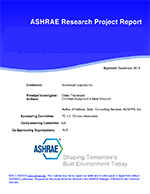Buildings strongly perturb local wind fields and influence the transport and dispersion of air pollutants. Adequate predictive capability is generally not available; suspected problems are often treated on a case-by-case basis with wind tunnel and field studies. Retrofit solutions are frequently necessary. However, field and laboratory research has provided some limited guidance for estimating flow and dispersion near isolated buildings, near some building clusters, and in urban street canyons. This paper reviews the guidance available, and discusses some of the additional work needed to improve predictive capabilities. In particular, systematic study of flow and dispersion within building clusters is needed to determine mutual flow interferences and to estimate the optimum placement of fixed pollutant sources (e.g., stacks or vents) and receptors (e.g., air conditioning inlets) within building clusters. It is unlikely that detailed predictive models will be available for routine use in complex situations such as industrial facilities, but it may at least be possible to establish reasonable bounds for the individual situation. Reliable procedures cannot be expected until at least the simpler building cluster cases are better understood.
Units: Dual
Citation: Symposium, ASHRAE Transactions, 1985, vol. 91, pt. 2B, Honolulu, HI
Product Details
- Published:
- 1985
- Number of Pages:
- 22
- File Size:
- 1 file , 2 MB
- Product Code(s):
- D-HI-85-34-1


